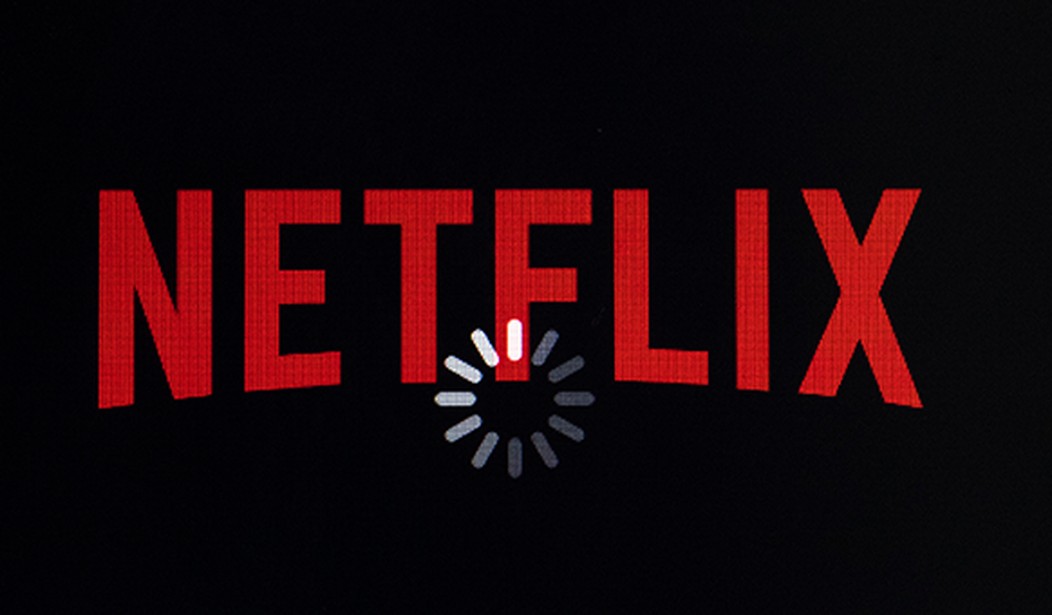Netflix stock took a tumble this week when the company announced that rather than gaining subscribers it had actually lost some for the first time in a decade. Even worse, it anticipates losing a lot more in the second quarter:
Netflix reported a loss of 200,000 paid subscribers in the first quarter ended March 31 — the first time in more than 10 years Netflix has lost subscribers during a quarter. The company projected it will lose 2 million more subscribers in the second quarter.
The streaming platform currently has 222 million subscribers worldwide. It enjoyed booming growth during the pandemic, but that customer surge has subsided — and now turned negative — as Covid-19 quarantines have largely lifted.
Netflix offered a bunch of excuses for this downturn starting with the obvious competition they now face from Disney+, HBOMax, etc. But they also pointed to another problem, one which the company has tolerated for years: Password sharing. It turns out that while the company has 222 million subscribers worldwide, another 130 million people are using someone else’s password to access content.
Netflix said it estimates more than 30 million U.S. and Canadian households are using a shared password to access its content. The company said more than 100 million additional households were likely using a shared password worldwide.
“Sharing likely helped fuel our growth by getting more people using and enjoying Netflix,” the company said in its shareholder note. “And we’ve always tried to make sharing within a member’s household easy, with features like profiles and multiple streams.”
But now that they’re losing subscribers and facing a lot more competition, the company plans to roll out a new system that will charge people for sharing passwords starting next year.
Cracking down on freeloaders seems like a good idea but I wonder if the focus on competition and password sharing hasn’t also obscured another factor in why people are dropping the service.
The woke mind virus is making Netflix unwatchable
— Elon Musk (@elonmusk) April 20, 2022
That’s not as implausible as it may sound. It was only 18-months ago that Netflix made news on the right for promoting a French film, called “Cuties” in English, about a group of pre-teens who learn to twerk. Netflix apologized for the advertising material which it admitted was “inappropriate.”
Last fall there was another controversy over the site’s decision to air a Dave Chappelle comedy special. In that case it was the left who was upset about the content. And once again, Netflix apologized. Nevertheless there was a small but highly covered protest by a handful of employees who were outraged that Netflix wouldn’t pull the content.
And of course Netflix recently spent a lot of money producing a star-studded movie that was really just an awkward, unfunny analogy about climate change. Even critics you would assume would be friendly to such an effort didn’t like the film. Here’s a bit of one take from New York Magazine:
Most of Don’t Look Up’s deficiencies as a climate parable derive from a simple fact: Climate change isn’t really analogous to a planet-killer comet.
McKay hit upon this analogy in a conversation with the left-wing journalist David Sirota. And one can understand the metaphor’s appeal: Like climate change, a comet can threaten all of humanity, reveal itself first to scientists, and become more difficult to address the longer that action is delayed. Unlike climate change, however, a comet operates in a manner and timescale conducive to a Hollywood narrative. Whereas the former threatens a diffuse, nonlinear, and gradual worsening of ecological conditions, the latter presents a clear-cut ticking-time-bomb scenario: Knock the space rock off its path and all is saved; act too late and a fiery apocalypse destroys everything in an instant.
Climate change is not remotely like this.
Maybe Netflix is losing subscribers purely because of rising competition or maybe it’s partly the result of both the left and right being upset with Netflix’s content. It could of course be both things at once. You don’t have to pay much attention to your customer’s feelings about what’s on the menu if they have nowhere else to eat. Now that people have other options, Netflix may have to think more carefully about who their audience really is.









Join the conversation as a VIP Member